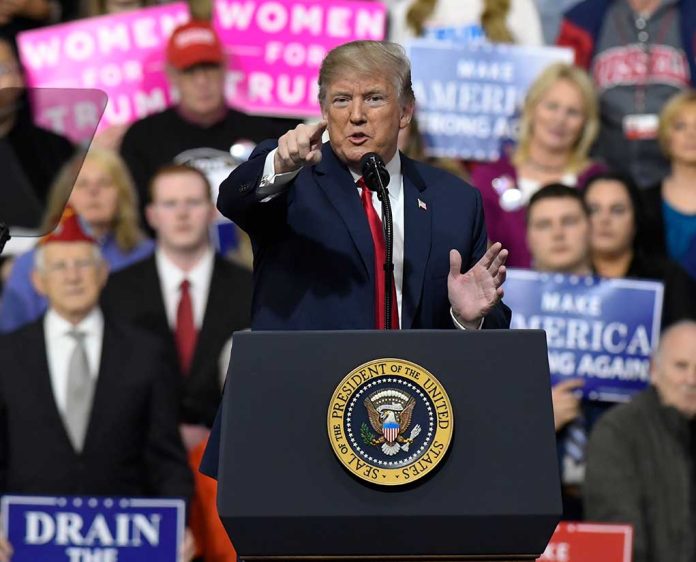
Georgia’s political landscape has shifted from a conservative stronghold to a battlefield of conflicting ideologies, raising questions about the future of American unity.
At a Glance
- Georgia’s political leanings have changed from conservative to liberal dominance.
- Many voters feel abandoned by current political leaders as traditional partisan lines blur.
- Some conservatives now support liberals, and vice versa, breaking party loyalty.
- Pro-American ideologies emphasize unity, rejecting divisive tactics.
Georgia’s Political Transformation
Georgia, once firmly conservative, has seen a notable shift towards liberal policies, evident in recent elections. Early voting revealed a significant tilt from traditional Republican dominance to a more mixed, even Democrat-favoring, outcome. This reflects a broader national trend where political affiliations are evolving, often transcending conventional party boundaries. Observers note that such changes are not merely about policy but rather signify deeper ideological shifts within the electorate, suggesting dissatisfaction with the current political establishment.
This evolution in Georgia highlights the growing complexity of modern American political identity. Some critique the lack of nuanced discussions distinguishing social from political identities, indicating that polarized partisanship harms participation and compromise. Political affiliation is now less about traditional labels and more about personal beliefs, as people seek leaders who understand and address their concerns.
Divisive ‘Us vs. Them’
The current political climate in Georgia exemplifies an “Us vs. Them” mentality. The “Them” refers to political elites perceived as disconnected from the average American. Voters increasingly view traditional parties as failing to represent their interests, leading many to support candidates like Donald Trump, who challenge the status quo. This shift signifies a broader trend where political loyalty is no longer about party but about aligning with leaders who reflect pro-American values of unity and patriotism.
Continuing this trend, some Democrats have swung their support to Trump, while others in the conservative camp lean towards figures like Kamala Harris. This fluidity marks a departure from long standing partisan loyalties, underscoring a desire for change and true representation, free from traditional constraints that often foster division rather than unity.
In light of today’s news, I thought I would try to take a step back and provide perspective on what this is really all about.
I first became concerned about @Harvard when 34 Harvard student organizations, early on the morning of October 8th before Israel had taken any military…
— Bill Ackman (@BillAckman) January 3, 2024
Pro-American Ideologies and Unity
Amidst these changing dynamics, the call for political unity grows stronger. Many Americans are gravitating towards pro-American ideologies characterized by aspirations for national strength and unity. Donald Trump and newcomers like JD Vance embody this movement, appealing to citizens disillusioned with divisive politics. Their stance resonates with voters yearning for policies that prioritize national interests over partisan agendas. This shift in perspective aligns with civic republican ideals, encouraging active citizenship and collective progress.
Those advocating for pro-American ideologies see unity as essential in overcoming political, social, and cultural divisions. The emphasis is on rebuilding a sense of community, prioritizing shared values over party politics. This approach seeks to heal wounds, especially in states like Georgia, where changes in political direction are unfolding. The hope remains that the American voter will align more with leaders who prioritize unity, faithful to the ethos of the nation.





